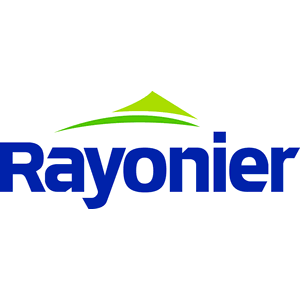Rayonier reported second-quarter, pro forma operating income of $94 million, unchanged from the prior year’s figure. Flat consolidated operating income obscured a year over-year improvement in the U.S. timberland business, which continues to enjoy better end-market conditions, both at home and abroad. Persistent log price strength contrasts with recent sharp weakness in prices for manufactured wood products (i.e., lumber and panels), which were back at 2012 levels by quarter-end. Higher input costs in performance fibers and an increase in corporate expenses kept better timberland results from making it to the bottom line.
Better price realizations led to a $10 million increase in U. S. timberland operating income. Strength was particularly evident in the Pacific Northwest. Rayonier’s delivered prices in the region improved to $72 per ton from $64, an increase commensurate with data previously published by the Oregon Department of Forestry. Management identified export demand as the main source of strength.
Log price gains in the Southeast were good, but more muted, as the region lacks meaningful export options and is less levered to housing (paper remains an important endmarket). Stumpage prices across the region was up to $18 per ton from $17, consistent with data from market sources. Pricing benefited from stronger housing demand and restricted supply due to wet weather.
Analysts continue to see ample additional upside to prices and volumes across the company’s domestic timberland portfolio. Of course, realizing that potential depends on a further recovery in housing starts, which seem to have stalled in recent months.
Suggested Reading: Biggest Corporate Scandals
